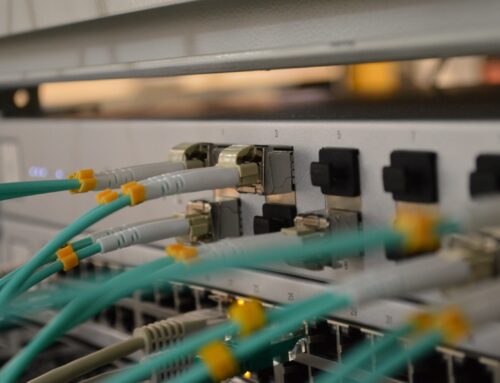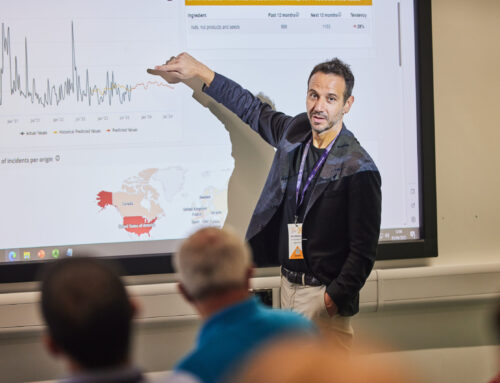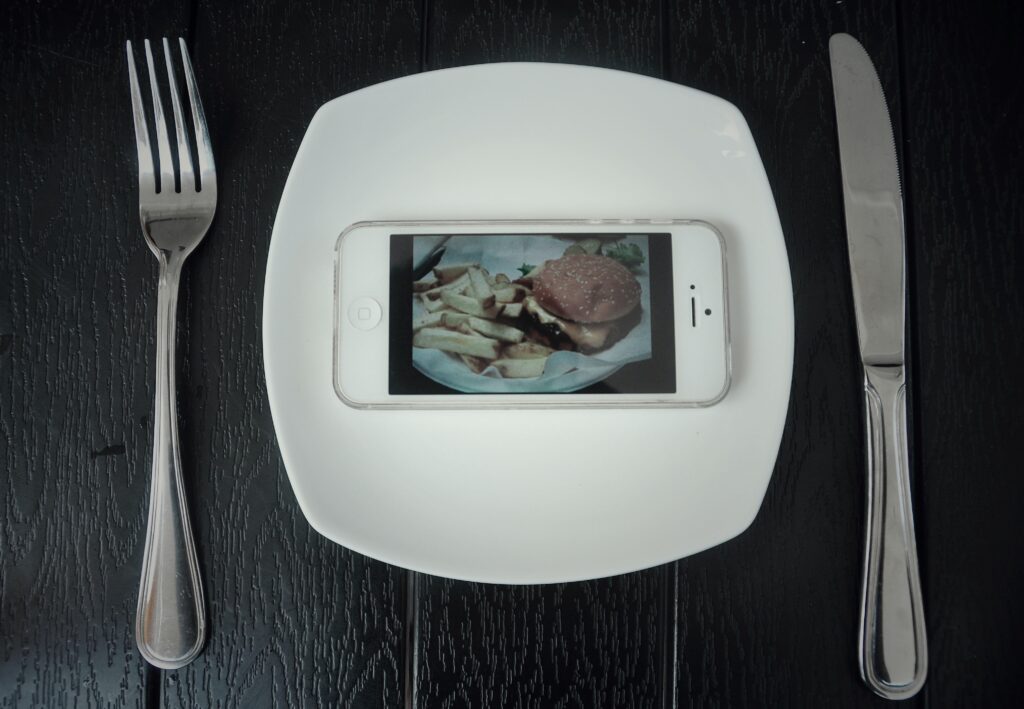
Every time that a food recall takes place, I get extremely frustrated.
What if there was a way for food companies to be notified about emerging risks that really need their attention and action, before such a recall happens?
Not simply receiving an alert after a recall has taken place, or a consumer has complained. Definitely not after having spent hours to investigate how valid and important such alerts are. What I am talking about is having something like a digital crystal ball. One to ask every morning about what is going to happen, before it does.
Because this technology already exists. And we see it out there in action. It is not working like magic (yet), neither it is widely adopted by food safety professionals. But there are pioneers showing the way of putting it in practice.
Like the ones we heard talking at the GFSI21 Special Session on the Promise & Perils of Predictive Analytics for Food Safety about how they use AI to take mission critical decisions:
- Amazon, that is deploying natural language processing and predictive modeling to process safety data about the billions of items in its marketplace.
- Coca-Cola, that is using a food risk prediction platform to monitor and prevent external risks across its global supply chain.
- U.S. FDA, that is using a machine learning system to process data from screening import shipments, decide which shipments to examine, and indicate which food in the shipment to sample for laboratory testing.
But let us also keep in mind the chasm between these daring innovators and the silent majority.
We need to find ways to cross this chasm.
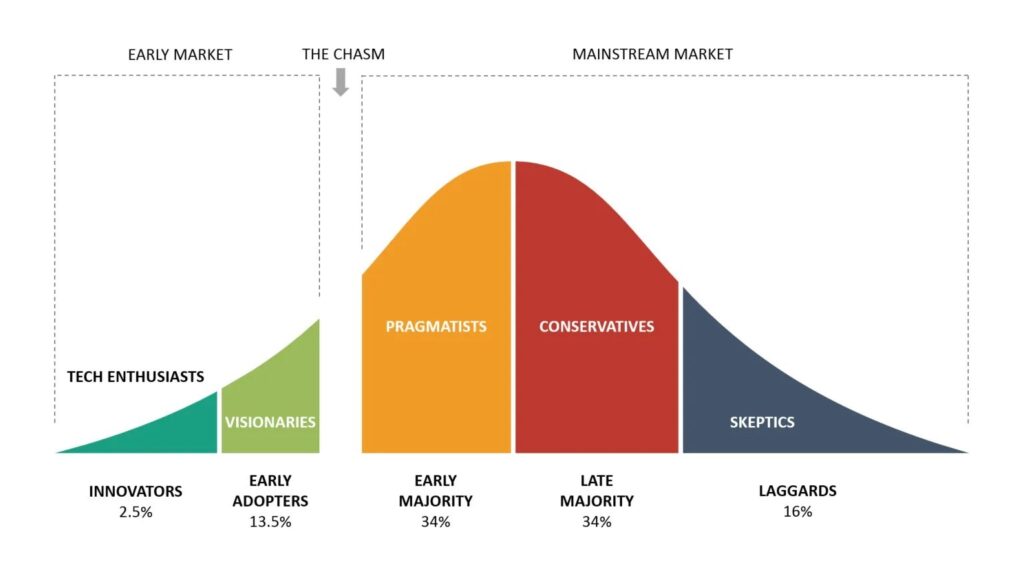
Moore’s Technology Adoption Life Cycle (source: https://www.business-to-you.com/crossing-the-chasm-technology-adoption-life-cycle/)
Let me give you an example:
I am a fanatic iPhone user. My smartphone is an essential part of my business operations. I rely upon it for critical daily actions, like monitoring my calendar, my priorities, my to-do list, my e-mails.
Still, I was not one of the early adopters of these devices when they first came out. Neither am I buying the newest iPhone model when it comes out.
The reason is simple: I am taking so many critical decisions every day assisted by my smartphone, that I want to make sure that I am using a fully tested and proven version of this technology.
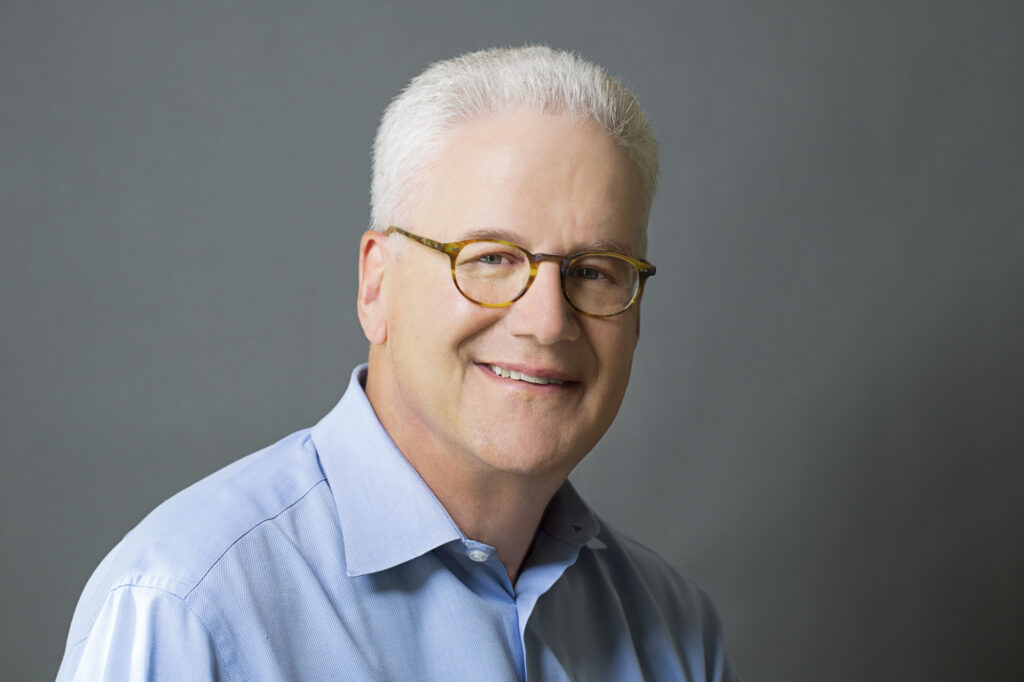
What would Geoffrey Moore think? (source: https://www.bigspeak.com/speakers/geoffrey-moore/)
According to Geoffrey Moore’s terminology, you could call me a pragmatist – or even a conservative smartphone user.
In predictive analytics for food safety, I think that we are staring at such a chasm. Separating the AI enthusiasts and visionaries from the pragmatists, conservatives and skeptics in the food industry.
I believe that this chasm is an opportunity for reflection. An opportunity to understand better the problems that this technology can help solve.
Join this conversation. Sign up to the Interest Group on Predictive Analytics for Food Integrity, an industry group discussing innovative applications of predictive models for food risk prediction & prevention.

